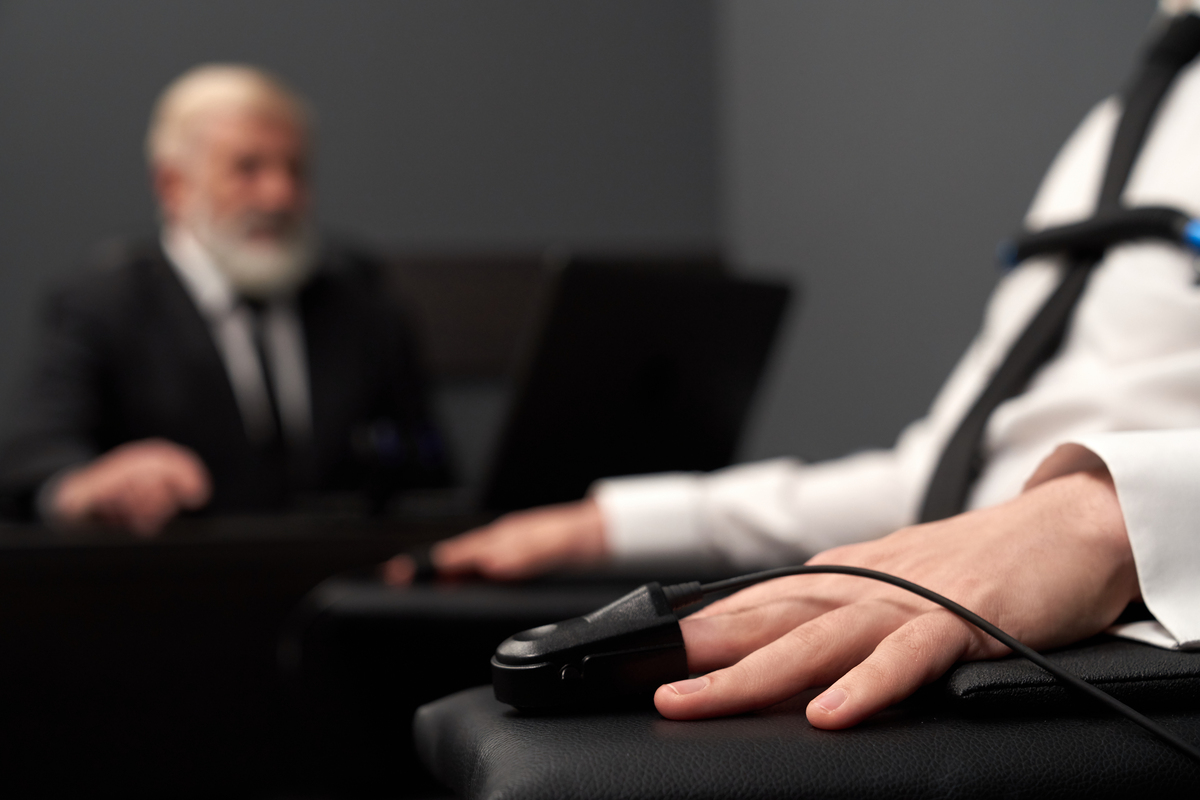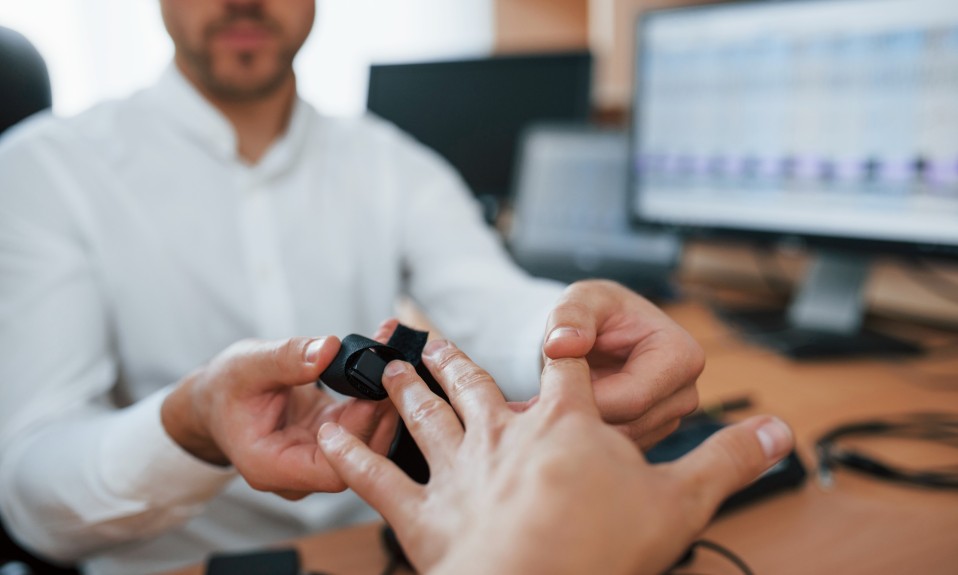Most people today want to know if polygraph tests for infidelity are accurate. The question of accuracy in this context is pivotal because often the results can produce more questions than answers. In this article, I’ll explain how polygraph tests for infidelity are done and how accurate they really are.

What Is Polygraph Tests?
A polygraph test is a series of questions using a polygraph machine. The machine measures your heart rate, blood pressure and breathing as you answer each question. The polygraph examiner records the results on a chart.
The results are compared to the measurements from when you answered “control” questions that have been determined by the examiner to be truthful. If your answers are consistent with the control questions, then it’s likely that your answers about other issues are also truthful.
Polygraph tests aren’t always used in criminal cases, but they’re often used in cases involving theft or embezzlement. They can also be used to help settle insurance disputes, marriage case or personal injury lawsuits.
How Accurate Are Polygraph Tests For Infidelity?
Polygraph tests are 97% accurate. A polygraph machine is a device that measures your blood pressure, heart rate, respiratory rate and skin conductivity as you answer questions. The machine then measures these on a graph that shows up on a computer screen in real time. The polygraph machine is sometimes called a lie detector because it shows whether your physiological responses are different when you tell the truth or lie.
How Do You Know If Your Spouse Is Lying?
There are many ways to tell if your partner is lying to you. When people lie, some of their actions and attitudes change. This could mean that he is lying. We will explain these symptoms later in our article.
Avoiding In Eye Contact
When you are talking to someone, it’s natural to look into their eyes. But if your spouse is avoiding eye contact with you, they could be lying.
Studies have shown that people who avoid eye contact when speaking with others tend to lie more than those who make eye contact. This is because looking someone in the eyes when talking requires more mental effort and concentration than simply staring at them from a distance.
If your husband or wife avoids looking directly at you when you talk, there is a good chance that what they’re saying isn’t true.
An Edge To Their Voice
Someone who is lying will often have an edge to their voice. They may sound nervous, or angry and defensive. This is because they are worried about being caught out.
If your spouse has an edge to his/her voice, they could be lying. It’s important to try and listen very carefully to what they’re saying, and see if there are any inconsistencies between what they’re saying and how they are saying it.
If your spouse seems angry when talking about something that happened, but then tries to cover up this anger by acting like nothing is wrong (for example, by pretending to be happy), then you can be pretty sure that he/she is not telling the truth.

They Start Talking More – Or Less
If your spouse talking too much or less more than usual, they could be lying. The same is true if they are talking more than usual when they normally don’t talk much at all.
Some lies come in the form of stories that are too detailed or have no point. The liar might also ramble on about something that doesn’t seem to have anything to do with the topic at hand or won’t make eye contact with you while speaking.
If your spouse is speaking faster than normal, this could be a sign of lying too. A person who is telling the truth takes time to think about what they’re going to say before speaking up, but someone who has something to hide will just blurt out whatever comes into their head first so they can get it over with quicker.
There’s A Shift In Body Language
Ever notice that when you tell a lie, your body changes? You may become more fidgety, or you might blush or even sweat.
And if someone is lying to you, they may do the same thing. They’ll shift their eyes away from yours or touch their face or neck. It’s a sign they’re trying to hide something.
When someone tells a lie, there’s a shift in body language that can be detected by watching for these five signs:
- They don’t make eye contact with you.
- They touch their face or neck area frequently (especially when you ask them questions).
- Their feet point away from you — or point toward an exit door — during the conversation (unless it’s part of an attempt to intimidate).
- They fidget constantly with their hands and arms, especially when asked direct questions about what happened or why they did something (or didn’t do something).
- Their feet point toward an exit door during the conversation (unless it’s part of an attempt to intimidate).
They Swear On Something Important To Them
If your spouse swearing on something important to them, it may be a sign that they are lying. Swearing on something is not always what it seems. It could mean that you are being lied to. But it could also mean that your spouse believes what they are saying is true.
Swearing on something important to your spouse is a sign that they believe in themselves and their integrity, but it can also be a sign of a lie. Swearing on something important means they are trying to convince you of their honesty and integrity by showing how much they believe in themselves and their word, but at the same time it might indicate dishonesty if they are lying about something else.
They Give You Too Much Detail
If your spouse give you too much detail about situation, it may be a sign that they are lying.
If they are telling you too much detail, they might be trying to make it seem like every piece of information is true. They might not realize that the more details they provide, the less believable their story will become.
When someone lies, their brain wants to remember as many details as possible so that it can tell a convincing story. Unfortunately for them, this can make them seem like a bad liar because they are unable to stick to a consistent narrative.
That’s all for now from the “How Accurate Are Polygraph Tests For Infidelity?” content prepared by Victoria Milan for you! If you are looking for more content like this, you can visit our blog and stay tuned.
Also, Victoria Milan is the best casual dating site that you can find someone. It’s the perfect place for you if you’re looking for a discreet affair or just want to have some fun on the side. With 10 million users, modern design, and unique features, Victoria Milan offers you the best user experience. %100 anonymous and you can see online users on the homepage and start a quick chat. Or you can easily find the perfect partner with filtering options. In addition, registration at Victoria Milan is free. Find a partner easily and quickly with Victoria Milan. Just click to register to Victoria Milan.

FAQ About Polygraph Tests For Infidelity
Are Lie Detectors Accurate For Infidelity?
Lie detectors are 97% accurate. Lie detectors are designed to detect lies. They can be used to determine whether someone is telling the truth about a particular incident or event, or they may be used to determine if someone has been lying in general. The first use is more common in criminal investigations, while the second use is more common in personal relationships.
Do Lie Detectors Work On Cheaters?
Yes lie detectors work on cheaters. Lie detectors are a type of polygraph, which is a medical machine that measures the heart rate, blood pressure and breathing rate. The idea is that when someone lies, their heart rate will increase and their breathing will become heavier. The most common lie detector test is the Polygraph test, which measures your pulse rate and blood pressure.
How Long Does A Polygraph Test Take For Infidelity?
A polygraph test is a lie detector test. It is an examination of the physiological reactions and responses to questions asked by an examiner. The examination is done to determine if someone is lying or telling the truth. The test results will take approximately 5 minutes to complete and you will be given the results immediately after completion.
Can You Fail A Polygraph By Being Nervous?
Yes. You can fail a polygraph by being nervous. There are two types of questions asked on a polygraph: control and relevant. Control questions are asked to establish your baseline, or how you typically respond to questions. For example, if you’re asked whether you like eating pizza and you say yes, that’s a control question because it’s not related to any criminal activity. Relevant questions are the ones that pertain to the crime being investigated, such as “did you commit the crime?” The purpose of the control questions is to help determine if your body is reacting differently when answering relevant questions than when answering control questions. If it’s showing more stress when answering relevant questions than when answering control questions, then there may be something going on that needs further investigation (i.e., lying).
What Are The Signs Of Lying?
- Avoiding In Eye Contact
- An Edge To Their Voice
- They Start Talking More – Or Less
- There’s A Shift In Body Language
- They Swear On Something Important To Them
- They Give You Too Much Detail










